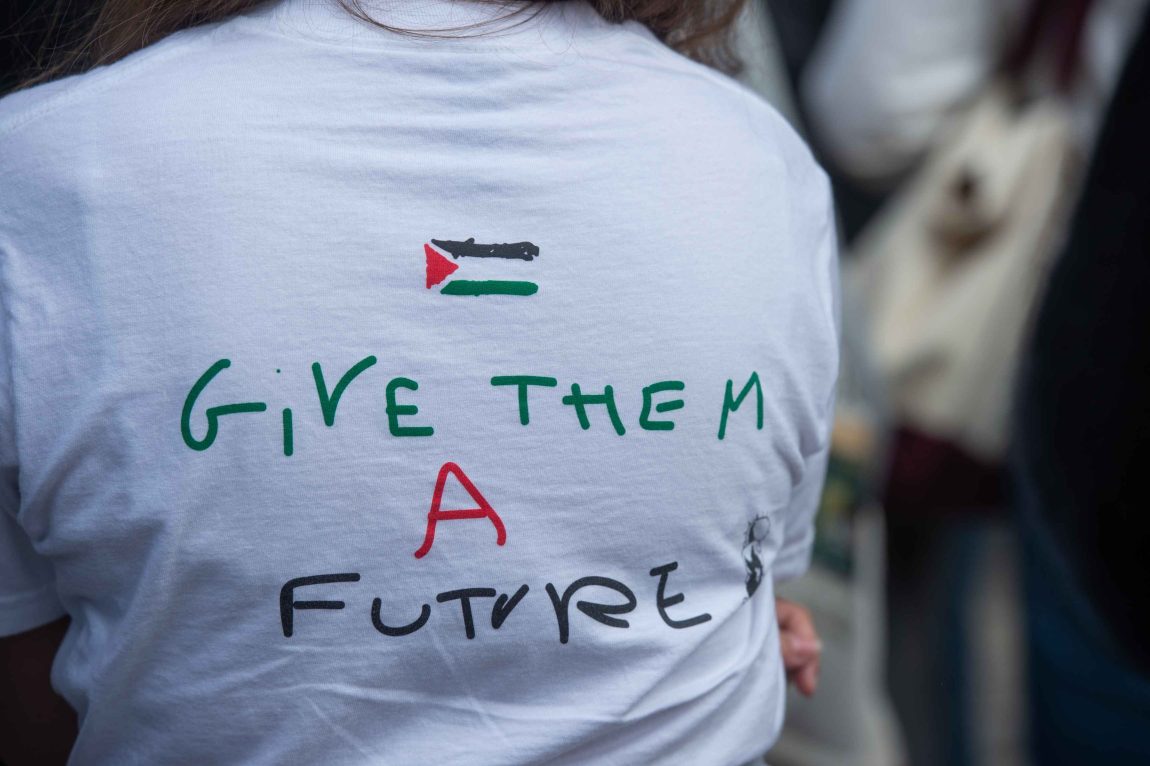
With all 12 of Gaza’s higher education institutions destroyed by Israeli bombs, what next for students, faculty, and the future of Palestinian learning? We speak to academics trying to keep teaching going and dreams alive.
Overview
Education is central to Palestinian identity and has been an active form of resilience for a people who have for generations had their homes, rights, and livelihoods stolen. It is well known that despite all the challenges of living under occupation, literacy rates in Gaza are among the highest in the world.
Since the start of the Israeli bombardment on October 7 however, nearly all of Gaza’s schools and universities have been reduced to rubble. This has taken more than 600,000 school children out of the classroom and forced tens of thousands of university students to put their studies – and futures – on hold.
Few Palestinians accept this is simply collateral damage and instead describe it as educide. They say Gaza’s education institutions and academics are being deliberately targeted by the Israelis to wipe out and disperse Palestine’s brightest minds; it is a deliberate ploy to limit the nation’s ability to rebuild when the war is over.
“This is more than a war. It is educide,” Dr Saida Affouneh, dean of the Faculty of Education at An Najah National University in the West Bank, one of our guests tells host Maysa Jalbout.
In partnership with UNIMED, the Mediterranean Universities Union, and the Palestinian Student Scholarship Fund (PSSF), An Najah is spearheading an initiative to share technology and resources to create an e-learning scheme for students in Gaza.
The main aim, Dr Affouneh explains, is to keep students and faculty in Gaza. “We don’t want to lose the experts and the brains of Gaza,” she says. “We need educated people to stay inside palestine in order to be able to rebuild the education system after the end of this genocide.”
At the time of recording, close to 47,000 students had already applied to the programme – equivalent to more than half the total number of Gazans enrolled in higher education – and 500 volunteer lecturers and professors from around the worldhad come forward to to teach 200 different courses.
As well as receiving lectures, students and their families will also have psychosocial support to help them process their experiences under the Israeli bombardment.
Dr Ihab Nasr, the Dean of Applied Medical Sciences at Al Alzhar University, is one of many academics who has chosen to leave Gaza, and he spoke to The Impact Room from Edmonton, Canada, where he has moved to begin a new life with his wife and five children.
He said he felt like he had left part of his soul behind in Gaza, as well as dozens of family members, many of whom are now stuck in tented camps.
“Leaving is not an easy decision,” he told Maysa. “This is your homeland. We don’t want to repeat An Nakba, where our grandfathers and fathers left, thinking that they will come again… And so it was very difficult decision… But when you are under the fire all the time, when the bombing is around you and is hitting the neighbourhood, your neighbours, your streets, sometimes your house, you don’t have any choice; the only thing you can do is to survive and to try to find the shelter for you and your kids.”
With his own university unable to offer online learning after its servers were destroyed, Dr Nasr is currently teaching nutrition modules via Birzeit University in the West Bank as part of the Rebuilding Hope initiative.
Also working to support students in Gaza is Professor Mahmoud Loubani, a UK-based cardiothoracic surgeon and chair of PalMed Academy, a branch of PalMed Europe, which promotes better healthcare for Palestinians at home and overseas.
Like many, Professor Loubani is concerned about the number of health professionals and medical faculty who have been killed and injured, and what that means for the future of Gaza’s healthcare amid ever growing complex health needs due to months of conflict.
In March this year, PalMed Academy launched the Gaza Educate Medics (GEM) initiative to establish a virtual medical college, leveraging the expertise of volunteering academics and consultants worldwide to educate Gaza’s medical students.
This approach allows students to follow their own syllabus and graduate from their respective colleges, preserving the institutions’ accreditation. More than 2,000 medical students have registered already and according to Professor Loubani, some 250 international faculty have come forward to teach them.
GEM will cater to all level of medical students, offering online tutoring for years one, two, and three, as well as clinical placements for years four, five, and six, some of which are already underway in Gaza’s embattled field hospitals.
Professor Loubani told Maysa: “I do encourage everybody to do whatever they can and not to despair,” he said. “This war will end, but the rebuilding will take time, and during now and the rebuilding phase, that’s what we need to provide the most support for the medical students and for the medical universities.”
Ambassador Husam Said Zomlot’s full speech from Cambridge University in June 2024, is available here.
Brian Cox was reading “If I must die”, the last poem written by Palestinan academic Refaat Alareer. This recording was made for the Palestinian Festival of Literature.
You could listen to all the episodes of The Impact Room here.
About the host
Maysa Jalbout is a leader in international development and philanthropy. Her previous roles include founding CEO of the Abdulla Al Ghurair Foundation for Education, a $1bn philanthropic initiative based in Dubai, and founding CEO of the Queen Rania Foundation. Maysa is a visiting scholar at MIT and ASU, and a non-resident Fellow at the Brookings Institution. Find her on Twitter, @MaysaJalbout.